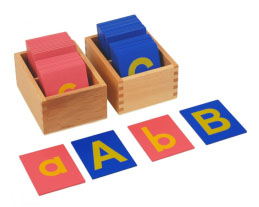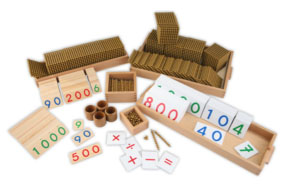
The work and materials are divided into 5 areas:
Practical life exercises
– develops motor skills, work habits and relationship to oneself and environment (self-sufficiency in dressing, hygiene,
preparing of snacks, dining, taking care of pets, householde, flowers, etiquette)

Sensorial education
– sensorial materials are designed to develop cognitive skills, and to help children classify and order impressions by touching,
seeing, smelling, tasting, listening, and exploring all the physical properties of their environment.
Language
– Language development is vital to all human development. The Montessori classroom is rich in oral language opportunities, allowing the child to experience conversation, poetry, and stories.
Children effortlessly link sound to symbol while tracing sandpaper letters with their fingers, thus encouraging the natural progression of written expression and reading skills.
Mathematics
 – Mathematical activities help children learn and understand the concepts of math by manipulating concrete materials.
– Mathematical activities help children learn and understand the concepts of math by manipulating concrete materials.
The work helps children acquire a solid understanding of basic mathematical principles, and prepares them for later abstractive reasoning.
Cosmic education
– includes natural science, geography, astronomy, biology, history, physics and chemistry in a form of illustrative materials
and practical experiments helps a child to understand world in natural relations.
